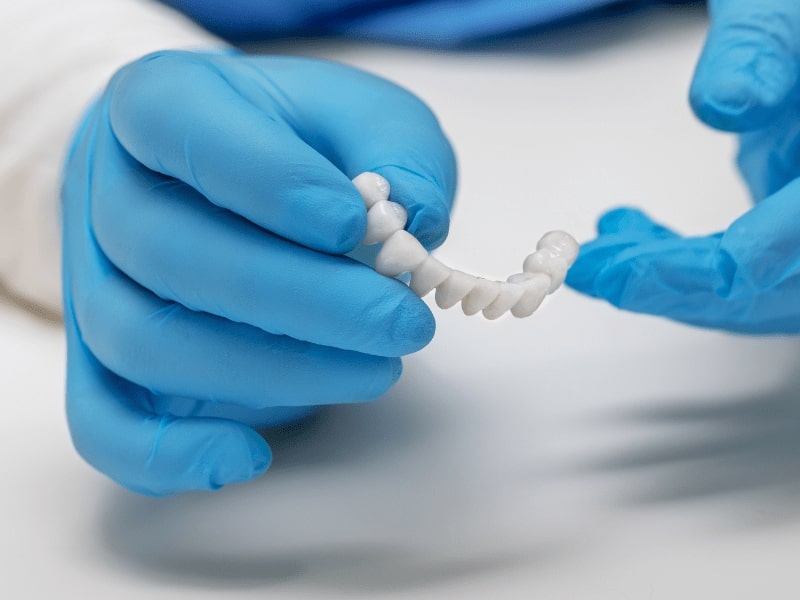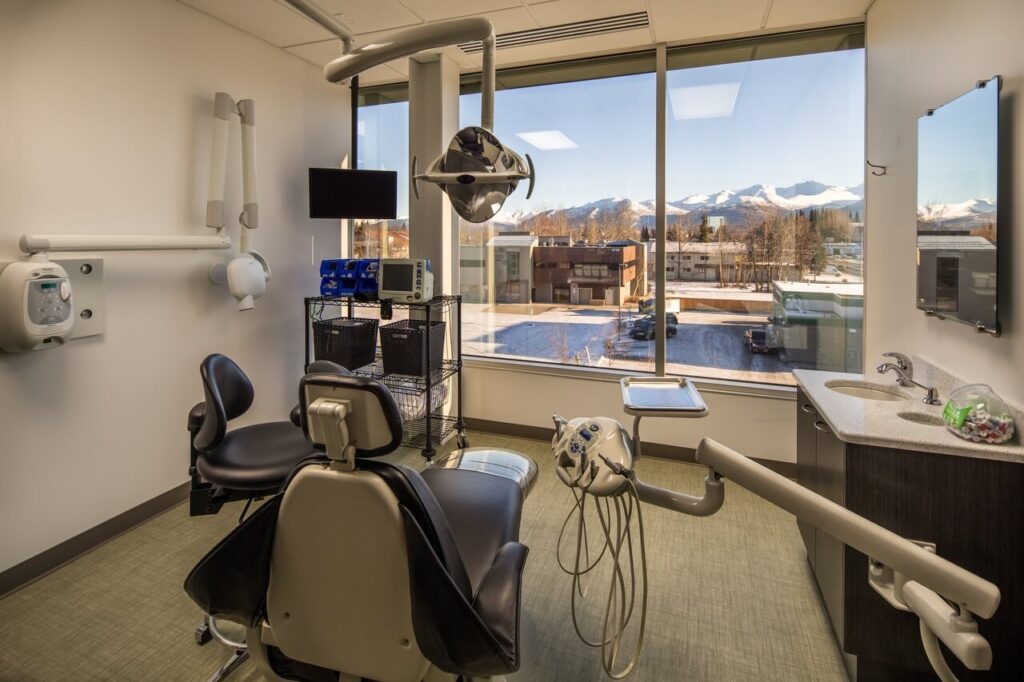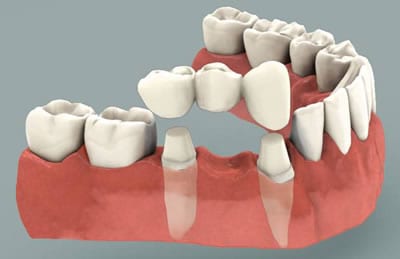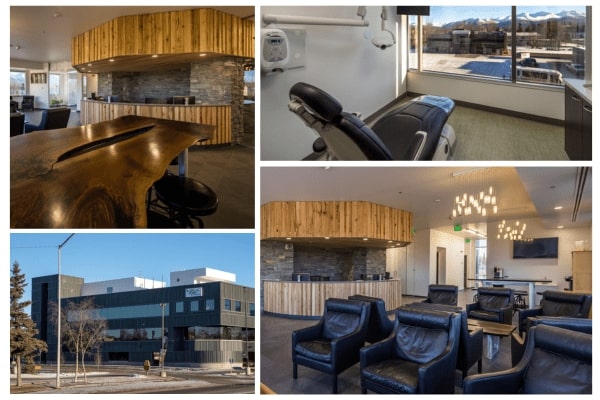boost your confidence and improve your oral health with a dental bridge
A missing tooth or teeth can put a dent in your confidence whether you’re socializing or engaging with others in the workplace. After all, you don’t want to be worrying about speaking, smiling or laughing for fear of embarrassment.
If you long for a full smile then a dental bridge could be the ideal solution. Not only does it restore the appearance of your smile and improve bite functionality, but it also makes it easier to maintain good oral health. If you’re missing one to three teeth in a row why not ask our dentists about a dental bridge?
Want to know more about restorative dentistry? Give us a call at (907) 646-8672 or book your appointment now

Dental bridges in anchorage don't just hide an embarrassing gap in your smile with a replacement tooth. in addition they have structural benefits that can help save the surrounding teeth by preventing uneven wear on the natural teeth while reducing pressure on the jawbone.

Why is replacing a missing tooth necessary?
Losing teeth is a common occurrence, especially as we age and our teeth weaken. You might question the need to address a missing tooth, but the truth is, the longer you delay replacing it, the greater the impact on your overall dental health. Without treatment, a missing tooth will cause all of the teeth in your mouth to shift and fill in the empty space.
This can cause larger dental issues like:
- Bite issues
- Poor tooth alignment
- Jaw and tooth pain
- Difficulty chewing
- A change in your face shape
Whether your tooth loss is due to gum disease, genetics, or an injury, we’re here to help you restore your smile, oral health and confidence with our dental bridges in Anchorage.
What kind of bridges are there?
The type of bridge you get will depend on the condition of the teeth at either end of your tooth gap. Dental bridges need to be fixed to dental implants or healthy teeth.
- Traditional fixed bridges are the most common type of dental bridge. They are placed by being anchored to two or more healthy teeth covered by crowns and contain replacement teeth fused together to fill in the gap of the missing tooth.
- Bridges supported by implants differ from traditional bridges in that dental implants are used to secure them as opposed to natural teeth. This makes them an ideal options for patients lacking healthy teeth surrounding the missing tooth.

What to expect when you get a dental bridge
Once you decide that a dental bridge is a right option for you, the real work begins. Your dentist typically begins by preparing the abutment teeth (described above) that form the boundaries of the dental bridge by removing some of the tooth enamel to accommodate the dental crowns so they fit over them seamlessly. An impression or digital scan is taken of the prepared teeth and sent to the lab where your bridge will be made. This can take between two and three weeks. Meanwhile temporary crowns are placed over the prepared teeth to protect them from infection while you wait for the dental bridge to be made.
Once the dental bridge comes back from the lab, we’ll schedule a second visit to our office for you to try on the bridge. Our dentist will check the fit and make any adjustments before cementing it into position.
After receiving your dental bridge, it’s vital to maintain good oral health and care for it as you would natural teeth with brushing twice daily and flossing once a day to keep plaque at bay. For the long-term success of the dental bridge, it’s crucial that the crowned teeth remain healthy and free from gum disease.
Frequently Asked Questions
More questions? We’re ready to help. Give us a call at (907) 646-8672 or book your appointment now.
The best way to care for a dental bridge is to properly care for your remaining teeth. Your bridge is depending on the strength and durability of the teeth it’s secured to, so a solid oral health routine will go a long way:
- Brush your teeth twice a day for two minutes at a time
- Floss at least once a day
- Eat a healthy diet, limiting sugary and acidic foods
- Visit your dentist every 6 months for routine dental cleanings and exams
When you practice good oral hygiene, your new bridge can easily last 10 years or more. At minimum, tooth bridges last between five and seven years.
The reality is, having missing teeth actually makes it more difficult to speak and to eat certain foods. Replacing the teeth with a dental bridge actually improves speech and makes chewing easier.

Visit Us
We’re conveniently located in the UMED district of midtown Anchorage.
-
2665 E. Tudor Rd, 300
Anchorage, AK 99507 - Get Directions
- Monday - Friday: 8AM-5PM
